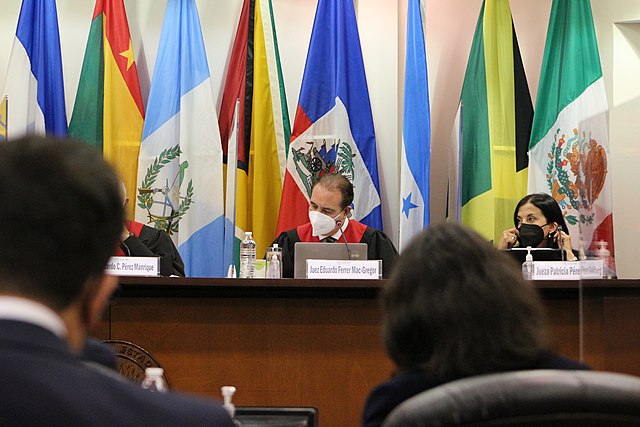The Inter-American Court of Human Rights (IACHR) Wednesday held its first hearing in Beatriz v. El Salvador, a case addressing abortion access in El Salvador.Beatriz, whose real name is witheld for privacy, was denied an abortion in El Salvador despite risks to her health. In early 2013, Beatriz was informed by doctors that her fetus was anencephalic, developing without a brain or skull, and the fetus would not survive more than a few hours after birth. In addition to the fetal condition, Beatriz was diagnosed earlier that year with lupus, kidney damage and arthritis. These conditions made her pregnancy extremely high-risk, and her doctors advised Beatriz to seek an abortion.At 13 weeks pregnant, Beatriz requested an abortion from the Supreme Court of El Salvador and was denied. The IACHR later took up her case and granted Beatriz an emergency c-section under a provisionary measure. At that point, Beatriz was already 26 weeks pregnant. The fetus died five hours after birth, and Beatriz suffered severe medical complications. Beatriz died a few years later in 2017 after being involved in a minor motorcycle accident. According to her mother, Beatriz’s health was greatly weakened by the c-section complications, potentially contributing to the fetal result.El Salvador currently has a strict abortion ban, with criminal sanctions at a maximum of 50 years. According to Human Rights Watch (HRW), women in El Salvador have been convicted and imprisoned under these sanctions with evidence of only miscarriage or stillbirth.According to HRW:Countries have obligations to respect, protect, and fulfill human rights, including those concerning sexual and reproductive health and autonomy. Where safe and legal abortion services are unreasonably restricted or not fully available, many other internationally protected human rights may be at risk, including rights to nondiscrimination and equality; to life, health, and information; to freedom from torture and cruel, inhuman and degrading treatment; to privacy and bodily autonomy and integrity; to decide the number and spacing of children; to liberty; to enjoy the benefits of scientific progress; and to freedom of conscience and religion.Beatriz’s case is not the first time that abortion restrictions in El Salvador have come under fire at the IACHR. In 2021, the IACHR ruled that criminal sanctions should not be imposed automatically when the termination of a pregnancy results from an obstetric emergency. Despite these recommendations, the criminal abortion laws in El Salvador still stand. Many activists hope that a positive ruling in Beatriz’s case will push legislation towards decriminalization.




The Most Read
Сryptocurrencies
Bitcoin and Altcoins Trading Near Make-or-Break Levels
Financial crimes
Thieves targeted crypto execs and threatened their families in wide-ranging scheme
Financial crimes
Visa Warning: Hackers Ramp Up Card Stealing Attacks At Gas Stations
News
Capitalism is having an identity crisis – but it is still the best system
Uncategorized
The 73-year-old Vietnamese refugee is responsible for bringing Sriracha to American consumers
Uncategorized
Electric Truckmaker Rivian, Backed By Amazon, Ford, Raises Whopping $1.3 Billion